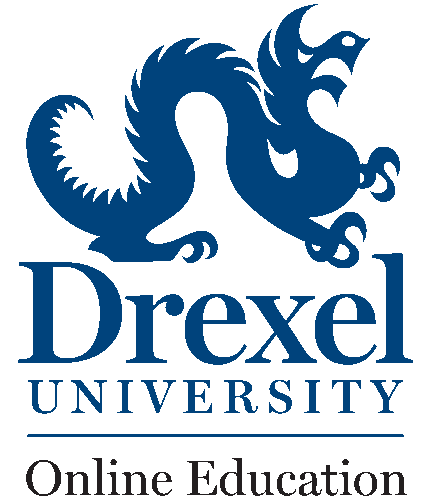


Requirements
and Restrictions
Learning Work?
or Live Event

Online Bachelor's Degree in Elementary Education
Classes Begin: March 30, 20262-4 years
Fully Online
180
CAEP accredited provider
BS in Elementary Education Degree
Drexel University’s accredited online bachelor’s elementary education degree is designed to help you prepare for PK-4 elementary teacher certification or PK-4 and Special Education certification.
As a student of the BS in Elementary Education program, you’ll be provided with a personalized plan of study consisting of courses that teach the skills and knowledge to effectively lead an elementary-level classroom, work with pedagogical technology, and enhance creative problem-solving skills.
The PreK-4 specialization covers required competencies such as:
- Child Development
- Language Development
- Early Literacy and Math Foundations
- Early Intervention
- Integration of the Arts for the Developing Child
- Family and Community Partnerships
The Special Education specialization covers required competencies such as:
- Understanding the Complexities of the Disabled Learner’s Needs
- Modifying a Curriculum
- Providing Remedial Instruction
- Using Technology to Address the Learner’s Needs
- Managing Instruction for Students with Special Needs in the Inclusive Classroom
What is a Bachelor’s in Elementary Education?
A bachelor’s in elementary education is an undergraduate degree program that can lead to a future as a teacher or education professional for grades PreK-4. It prepares you for state teaching certification, though many who wish to work in education in a non-teaching capacity often earn the degree as well. If you plan to get certified as an elementary teacher, you are required to participate in student teaching experiences. If you are not looking to teach, you can take additional pedagogy courses.
Earning an undergraduate degree in elementary education has many benefits. In the following video, Valerie Klein, Program Director for Drexel’s teacher education programs, shares seven reasons why you should enroll in Drexel’s online BS in Elementary Education.
Bachelor’s Degree in Elementary Education Program Features
Drexel’s BS in Elementary Education is a 180 quarter credit, part-time degree program. It can take approximately 2.5-5 years to complete the program, depending on the number of credits transferred in. You can transfer up to 90 quarter credits (60 semester credits) from any regionally accredited institution of higher learning with a minimum grade of B in core coursework or a C or better in general education or electives. Core courses include 81 quarter credits in pedagogy requirements and 18 quarter credits in student teaching, in addition to general education classes and electives.
Additional features include:
- Program is approved by the Pennsylvania Department of Education and coursework corresponds to state certification preparation standards
- Prepares you to obtain a Pennsylvania Instructional I Certificate—through Interstate Reciprocity Agreements, graduates can become certified to teach in almost any state
- Option to add coursework to prepare for Special Education Certification
- Drexel’s Field Placement Office is dedicated to securing all field experiences
- Graduates have access to two years of post-program support including classroom-based coaching, professional development and networking programs, and notifications of job openings
- Drexel University is proud to be a partner of the T.E.A.C.H. Early Childhood® Pennsylvania Scholarship Program and the PHMC-Early Childhood Education Scholarship.
Field Experience Rooted In Real-World Teaching
Drexel University's School of Education seamlessly integrates meaningful field experiences with coursework. Through a four-stage model, students in the part-time, online BS in Education program and the post-bachelor's teacher certification program gain hands-on experience that meets all PA Department of Education requirements for student teaching. This approach ensures graduates are well-prepared for rewarding careers as educators.
Undergraduate Experience
Cristiane Alexander, a BS in Elementary Education student, shares how Drexel's teacher education program and the PHMC Early Childhood Education Scholarship have empowered her career as an early childhood educator. With enhanced skills in child development, communication, and activity design, Cristiane has gained respect from colleagues and parents alike. Her journey highlights Drexel's commitment to providing transformative experiences that prepare educators to make a meaningful impact in their communities. Learn more about Cristiane’s story.
CAEP Accredited Provider

The Council for the Accreditation of Education Preparation (CAEP) accredits Drexel University School of Education educator preparation programs. CAEP promotes excellence in educator preparation through quality assurance and continuous improvement. Drexel University meets rigorous national standards for education preparation set by the Council for the Accreditation of Education Preparation.
What are the Requirements for a BS in Elementary Education?
In addition to a completed application, you should be prepared to submit the following items in order to be considered for the online BS in Elementary Education:
- All applicants
Official transcripts from all universities or colleges and other post-secondary educational institutions attended(including trade schools) - Applicants with less than 24 credits must also submit
Official high school transcripts and personal essay
Learn more about additional requirements for international students.
What Can I Do with My Elementary Education Degree?
Though the most obvious path for those with education degrees is to go into teaching, there are other career opportunities as well, including:
- Curriculum Design
- Positions in Non-Profit Organizations
- School Administration
- School Counselors
- School Librarians
State Certification for Pennsylvania Elementary Education (PK-4)
Drexel's BS in Elementary Education degree program is approved by the Pennsylvania Department of Education under its rigorous guidelines for teacher certification preparation programs. Students who complete the program are recommended for Pennsylvania elementary education (PK-4) certification. In most cases, Pennsylvania's rigorous certification guidelines provide for a smooth transition of certification to other states.
Some states may require additional coursework or exams prior to obtaining their teacher certificate. Since requirements are constantly evolving in most states, please be sure to confirm any reciprocity agreements with your home state's certifying agency. Certification reciprocity assists in obtaining your certification in another state, but you still must meet the receiving state's certification requirements. Specific state information is available through The National Association of State Directors of Teacher Education and Certification.
Student Teaching Requirements for Drexel’s Elementary Education Degree
Teacher certification requires 12 consecutive weeks of full-day student teaching and an additional 190 hours of in-school pre-student teaching activities which are embedded into pedagogy courses throughout the program.
Non-Certification Option
Drexel also offers an online BS In Education: Non-Certification for those not planning to pursue PreK-4 teaching positions are not required to complete the student teaching placement and alternate pedagogy courses are substituted for student teaching.
BS in Elementary Education Salary Expectations
Whether you plan to teach or work in the education field in another capacity, you’ll enter the job market prepared to command a competitive salary. Actual earnings vary based on the exact position and location, but here are some common salaries and job titles:
Job Title
2017 Median Salary*
Coach
$32,270
Elementary School Teacher
$56,900
Special Education Teacher
$58,980
Social and Community Service Manager
$64,100
Training and Development Specialist
$60,360
*Source: Bureau of Labor Statistics.
Learn more with our teacher’s salary guide.
BS in Elementary Education Program FAQs
Can you become a teacher with an online degree?
Yes, you can become a teacher with an online degree. Drexel’s online elementary education degree provides the same core pedagogy classes and student teaching experiences that you would find in an on-campus program. This program is approved by the Pennsylvania Department of Education and coursework corresponds to state certification preparation standards. Upon completing the program, you will be eligible to obtain Pennsylvania Instructional I Certificate. And, through Interstate Reciprocity Agreements, you can become certified to teach in almost any state.
Do I need to have my teaching certificate to apply to this program?
No, you do not need to have your teaching certificate before applying to this program. Drexel’s online BS in Elementary Education prepares you for PreK-4 elementary teacher certification or PreK-4 and Special Education certification.
Are there any on-campus requirements for this program?
There are no on-campus requirements for this elementary education degree. However, you will have to complete a student teaching experience, which may take place in person. Drexel’s Field Placement Office can help you secure placement for your required student teaching experiences.
Archived Webinars
Related Programs
- BS in Educational Studies and Innovation
- MS in Teaching, Learning, and Curriculum: Teacher Certification Track - Grades PreK-4 Education
State restrictions may apply to some programs.
Curriculum
This program is organized into four 10-week quarters per year (as opposed to the traditional two semester system) which means you can take more courses in a shorter time period. One semester credit is equivalent to 1.5 quarter credits.
You can transfer up to 90 quarter credits (60 semester credits) from any accredited institution of higher learning as long as the grade is a C or better. Most credits will fulfill liberal arts or general classes.
PK-4 Specialization
| General Education/Content Requirements | ||
| BIO 100 | Applied Cells, Genetics & Physiology | 3.0 |
| or BIO 161 | General Biology I | |
| BIO 101 | Applied Biological Diversity, Ecology & Evolution | 3.0 |
| or BIO 162 | General Biology II | |
| CHEM 111 | General Chemistry I | 4.0 |
| CIVC 101 | Introduction to Civic Engagement * | 1.0 |
| COM 111 | Principles of Communication | 3.0 |
| COOP 101 | Career Management and Professional Development * | 1.0 |
| ECON 201 | Principles of Microeconomics | 4.0 |
| ENGL 101 | Composition and Rhetoric I: Inquiry and Exploratory Research | 3.0 |
| or ENGL 111 | English Composition I | |
| ENGL 102 | Composition and Rhetoric II: Advanced Research and Evidence-Based Writing | 3.0 |
| or ENGL 112 | English Composition II | |
| ENGL 103 | Composition and Rhetoric III: Themes and Genres | 3.0 |
| or ENGL 113 | English Composition III | |
| ENVS 260 | Environmental Science and Society | 3.0 |
| HIST 275 | History of Pennsylvania | 3.0 |
| MATH 101 | Introduction to Analysis I | 4.0 |
| or MATH 171 | Introduction to Analysis A | |
| MATH 102 | Introduction to Analysis II | 4.0 |
| or MATH 172 | Introduction to Analysis B | |
| MATH 107 | Probability and Statistics for Liberal Arts | 3.0 |
| or MATH 173 | Introduction to Analysis C | |
| MUSC 130 | Introduction to Music | 3.0 |
| NFS 100 | Nutrition, Foods, and Health | 2.0 |
| NFS 101 | Introduction to Nutrition & Food | 1.0 |
| PHYS 151 | Applied Physics | 3.0 |
| PSY 101 | General Psychology I | 3.0 |
| PSY 320 [WI] | Educational Psychology | 3.0 |
| PSY 330 | Cognitive Psychology | 3.0 |
| SOC 335 | Sociology of Education | 3.0 |
| UNIV T101 | The Drexel Experience * | 1.0 |
| English (Literature) elective: Select course between ENGL 200 - ENGL 360 | 3.0 | |
| Free electives | 11.0 | |
| Pedagogy Requirements | ||
| EDEX 142 | Special Education Foundations: Referral and Assessment | 3.0 |
| EDEX 344 | Inclusive Practices | 3.0 |
| EDEX 368 [WI] | Literacy and Content Skill Development PK-12 | 3.0 |
| EDLT 325 | Design for Learning with Digital Media | 3.0 |
| EDPO 312 | Educational Policy, Law & Advocacy | 3.0 |
| EDUC 101 | Foundations in Education I: A Historical and Philosophical Perspective | 3.0 |
| EDUC 106 | First Year Seminar: A Case of Schools and Cities | 1.0 |
| EDUC 107 | First Year Seminar: Exploring Pedagogies | 1.0 |
| EDUC 108 | First Year Seminar: Designing Learning Spaces | 1.0 |
| EDUC 205 | Sophomore Pedagogy Seminar | 1.0 |
| EDUC 210 | Early Language Development | 3.0 |
| EDUC 216 | Diversity and Today's Teacher | 3.0 |
| EDUC 222 | Development in Early Childhood Education | 3.0 |
| EDUC 236 | Early Literacy I | 3.0 |
| EDUC 305 [WI] | Junior Pedagogy Seminar | 1.0 |
| EDUC 306 | Assessment of Young Children I | 3.0 |
| EDUC 308 | Creating a Positive Classroom Climate | 3.0 |
| EDUC 314 | Science Teaching Methods | 3.0 |
| EDUC 316 | Teaching in Urban Contexts | 3.0 |
| EDUC 324 | Current Research in Curriculum & Instruction | 3.0 |
| EDUC 326 [WI] | Language Arts Processes | 3.0 |
| EDUC 335 | Engaging the Learner | 3.0 |
| EDUC 336 | Early Literacy II | 3.0 |
| EDUC 338 | Expressive Arts for PK-4 | 3.0 |
| EDUC 355 | Social Studies Teaching Methods | 3.0 |
| EDUC 365 | Foundations in Instructing English Language Learners | 3.0 |
| EDUC 405 | Senior Pedagogy Seminar | 1.0 |
| EDUC 411 | Family and Community Partnerships | 3.0 |
| ESTM 342 | Teaching Engineering Concepts to Children | 3.0 |
| MTED 417 | Mathematics Methods and Content: Early Childhood | 3.0 |
| MTED 418 | Mathematics Methods and Content | 3.0 |
| Student Teaching Experience | ||
| EDUC 409 [WI] | Teaching Practicum | 9.0 |
| EDUC 410 [WI] | Student Teaching | 9.0 |
| Total Credits | 180.0 | |
PK-4 and Special Education Specialization
|
General Education/Content Requirements |
||
| BIO 100 | Applied Cells, Genetics & Physiology | 3.0 |
| or BIO 161 | General Biology I | |
| BIO 101 | Applied Biological Diversity, Ecology & Evolution | 3.0 |
| or BIO 162 | General Biology II | |
| CHEM 111 | General Chemistry I | 4.0 |
| CIVC 101 | Introduction to Civic Engagement * | 1.0 |
| COM 111 | Principles of Communication | 3.0 |
| COOP 101 | Career Management and Professional Development * | 1.0 |
| ECON 201 | Principles of Microeconomics | 4.0 |
| ENGL 101 | Composition and Rhetoric I: Inquiry and Exploratory Research | 3.0 |
| or ENGL 111 | English Composition I | |
| ENGL 102 | Composition and Rhetoric II: Advanced Research and Evidence-Based Writing | 3.0 |
| or ENGL 112 | English Composition II | |
| ENGL 103 | Composition and Rhetoric III: Themes and Genres | 3.0 |
| or ENGL 113 | English Composition III | |
| English (Literature) elective: Select course between ENGL 200 - ENGL 360 | 3.0 | |
| ENVS 260 | Environmental Science and Society | 3.0 |
| HIST 275 | History of Pennsylvania | 3.0 |
| MATH 171 | Introduction to Analysis A | 3.0 |
| or MATH 101 | Introduction to Analysis I | |
| MATH 172 | Introduction to Analysis B | 3.0 |
| or MATH 102 | Introduction to Analysis II | |
| MATH 173 | Introduction to Analysis C | 3.0 |
| or MATH 107 | Probability and Statistics for Liberal Arts | |
| MUSC 130 | Introduction to Music | 3.0 |
| NFS 100 | Nutrition, Foods, and Health | 2.0 |
| NFS 101 | Introduction to Nutrition & Food | 1.0 |
| PHYS 151 | Applied Physics | 3.0 |
| PSY 101 | General Psychology I | 3.0 |
| PSY 320 [WI] | Educational Psychology | 3.0 |
| PSY 330 | Cognitive Psychology | 3.0 |
| SOC 335 | Sociology of Education | 3.0 |
| UNIV T101 | The Drexel Experience * | 1.0 |
|
Pedagogy Requirements |
||
| EDEX 142 | Special Education Foundations: Referral and Assessment | 3.0 |
| EDEX 344 | Inclusive Practices | 3.0 |
| EDEX 368 [WI] | Literacy and Content Skill Development PK-12 | 3.0 |
| EDLT 325 | Design for Learning with Digital Media | 3.0 |
| EDPO 312 | Educational Policy, Law & Advocacy | 3.0 |
| EDUC 101 | Foundations in Education I: A Historical and Philosophical Perspective | 3.0 |
| EDUC 106 | First Year Seminar: A Case of Schools and Cities | 1.0 |
| EDUC 107 | First Year Seminar: Exploring Pedagogies | 1.0 |
| EDUC 108 | First Year Seminar: Designing Learning Spaces | 1.0 |
| EDUC 205 | Sophomore Pedagogy Seminar | 1.0 |
| EDUC 216 | Diversity and Today's Teacher | 3.0 |
| EDUC 222 | Development in Early Childhood Education | 3.0 |
| EDUC 236 | Early Literacy I | 3.0 |
| EDUC 305 [WI] | Junior Pedagogy Seminar | 1.0 |
| EDUC 306 | Assessment of Young Children I | 3.0 |
| EDUC 308 | Creating a Positive Classroom Climate | 3.0 |
| EDUC 314 | Science Teaching Methods | 3.0 |
| EDUC 316 | Teaching in Urban Contexts | 3.0 |
| EDUC 324 | Current Research in Curriculum & Instruction | 3.0 |
| EDUC 326 [WI] | Language Arts Processes | 3.0 |
| EDUC 335 | Engaging the Learner | 3.0 |
| EDUC 336 | Early Literacy II | 3.0 |
| EDUC 338 | Expressive Arts for PK-4 | 3.0 |
| EDUC 355 | Social Studies Teaching Methods | 3.0 |
| EDUC 365 | Foundations in Instructing English Language Learners | 3.0 |
| EDUC 405 | Senior Pedagogy Seminar | 1.0 |
| EDUC 411 | Family and Community Partnerships | 3.0 |
| MTED 417 | Mathematics Methods and Content: Early Childhood | 3.0 |
| MTED 418 | Mathematics Methods and Content | 3.0 |
|
Special Education Core Courses |
||
| EDEX 336 | Special Education Law and Processes | 3.0 |
| EDEX 348 | Emotional and Behavioral Support of Individuals with Disabilities | 3.0 |
| EDEX 349 | Teaching Individuals with High Incident Disabilities | 3.0 |
| EDEX 350 | Teaching Individuals with Low Incident Disabilities | 3.0 |
| EDEX 352 | Integrating Technology for Learning & Achievement | 3.0 |
| EDEX 355 | Teaching Students with Autism Spectrum Disorders | 3.0 |
| EDEX 378 | Special Education: Methods & Practices PK-12 | 3.0 |
| EDEX 388 | Implementing Academic Interventions in Inclusive Educational Environments | 3.0 |
|
Student Teaching Experience |
||
| EDUC 409 [WI] | Teaching Practicum | 9.0 |
| EDEX 414 [WI] | Special Education Student Teaching Seminar | 9.0 |
| Total Credits | 185.0 | |
Admissions Criteria
- Transfer Students
- A minimum of 24 previous college semester credits (36 quarter credits) from a regionally accredited institution, with a grade of C or better in content courses, or a grade of B or better in core pedagogy*
- College GPA of 2.75 or above (cumulative GPA of 3.0 must be achieved by end of program to obtain PA state teaching certification)
- First-Year Students
- Between 0 – 23 previous college semester credits from a regionally accredited institution*
- Must have earned a high school diploma or GED
- Non-Matriculated Option
- Drexel University also offers a non-matriculated option, where you can take courses without being enrolled in a degree-granting program.
*A transcript review will be conducted by a University advisor
Required Documents
With multiple ways to submit documents, Drexel makes it easy to complete your application. Learn more by visiting our Completing Your Application Guide.
- A completed application
- Transfer Students
- Official transcripts from all universities or colleges and other post-secondary educational institutions (including trade schools) attended
- First-Year Students
- Official high school transcripts
- Official transcripts from all universities or colleges and other post-secondary educational institutions (including trade schools) attended
- Personal Essay
- Transfer Students
- Additional requirements for International Students
Tuition
The tuition rate for the academic year 2025-2026 is $488 per credit. (A 52% tuition savings off Drexel's regular tuition rate of $1015 per credit)
The 52% tuition savings applies only to new students and cannot be combined with any other tuition benefits available through Drexel University.
- This program is eligible for Financial Aid.
- Special tuition rates available for Drexel University Alumni, Military members, and members of our Partner Organizations
- These rates apply only to new online students and students being readmitted.
- Tuition rates are subject to increase with the start of each academic year in the fall term.
- All students must contact applyDUonline@drexel.edu within the first two weeks of the term to request tuition savings for which they qualify.
- Special rates cannot be combined. If you qualify for more than one special rate, you'll be given the one with the largest savings.
- When receiving special tuition plans, you may not be able to combine them with other tuition benefits that may be available from Drexel University.
Academic Calendar
2025-2026 Academic Year
Term
Classes Begin
Classes End
Exams Begin
Exams End
Fall 2025
September 22, 2025
December 6, 2025
December 8, 2025
December 13, 2025
Winter 2026
January 5, 2026
March 14, 2026
March 16, 2026
March 21, 2026
Spring 2026
March 30, 2026
June 6, 2026
June 8, 2026
June 13, 2026
Summer 2026
June 22, 2026
August 29, 2026
August 31, 2026
September 5, 2026


© All Rights Reserved

